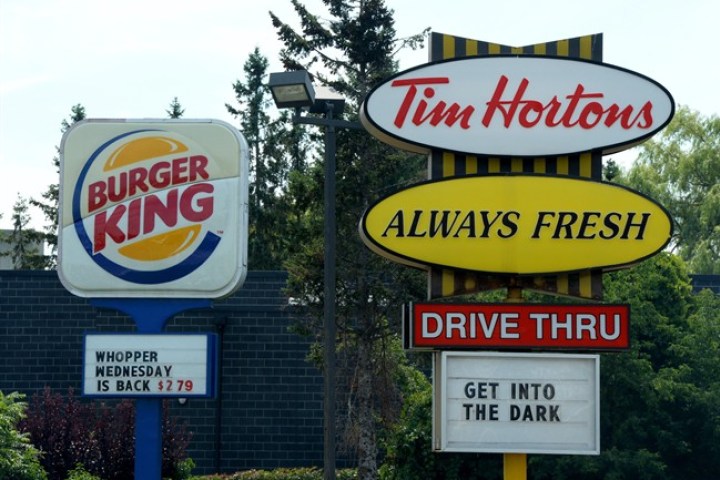When Burger King’s owners first announced last summer’s mega-deal to gobble up Tim Hortons, the fast-food firm’s executives downplayed a key reason why they were acquiring the Canadian coffee chain and relocating corporate HQ to Canada: to cut its taxes.

“Tax wasn’t really the driver of this,” Daniel Schwartz, the then-incoming head of the new Restaurant Brands International, stressed in late August.
“We don’t expect there to be meaningful tax savings, nor do we expect there to be a meaningful change in our tax rate,” the Burger King executive said.
Fast forward to Monday, where on a conference call company officials acknowledged the new entity is indeed benefiting from a lower tax rate.
“It’s a little bit lower than it was last year,” Josh Kobza, the head of finance for Tims and Burger King, said.
The combined company, which is headquartered in Oakville, Ont., paid $44.1 million in income tax in the three months ended March 31.
Analysts noted on the call that it gave Restaurant Brands an effective tax rate of a little over 22 per cent – a rate meaningfully better than the 27.5 per cent rate Burger King paid when it was a standalone burger chain based in Miami.
The federal corporate tax rate in Canada, where much of the combined firm’s business comes from, is 15 per cent. U.S. federal tax rates on businesses average 35 per cent.
Fading backlash
When the $12.4 billion deal was announced, Burger King faced a torrent of criticism from politicians and policy advocates for what was seen as an abandonment of its U.S. tax obligations. The fast-food chain became a lightning rod for attack for those opposing so-called “tax inversion” takeovers, which see a U.S. company merge with a foreign one and relocate in order to cut taxes.
Sherrod Brown, a Democratic Senator from Ohio, suggested customers head to Wendy’s after “Burger King’s decision to abandon the United States.”
MORE: Burger King faces new ‘test’ in quest for Tim Hortons
U.S. President Barack Obama blasted American firms who’ve undertaken inversion deals as “corporate deserters,” while legislation has since been introduced to curb such transactions.
U.S. fast-food consumers vowed boycotts, too. Hours after the deal was announced, Burger King’s Facebook page was flooded with threats from followers who said they’d never order a Whopper or chicken fries again.
Angst appears to be fading though. Sales at established Burger King restaurants in the U.S. and Canada are up 6.9 per cent, Restaurant Brands International said.
WATCH: Miami-based Burger King faced boycotts after it announced plans to merge with Tim Hortons an relocate to Ontario.


Comments